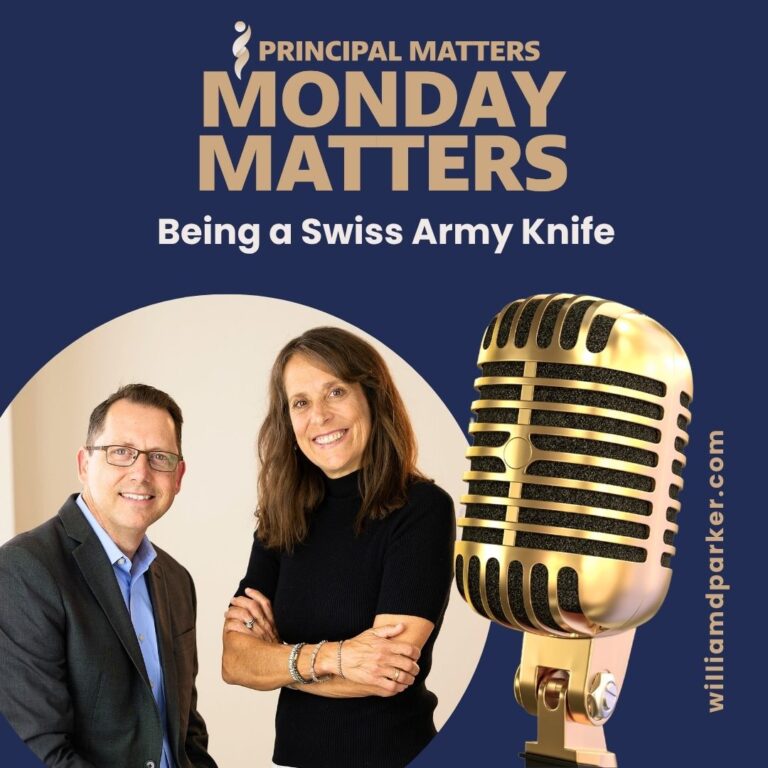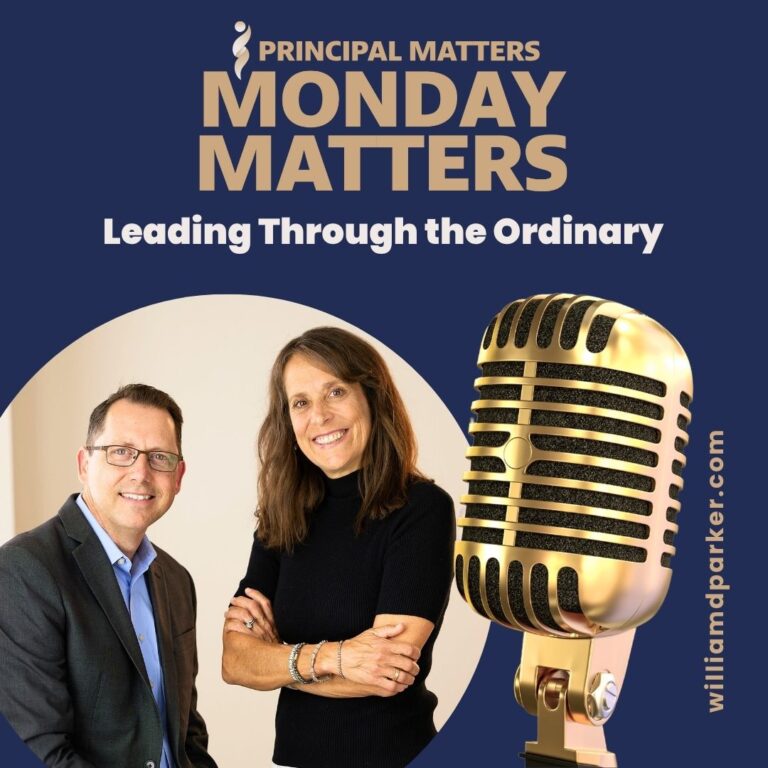Podcast: Play in new window | Download
A Quick Note to Listeners:
—- The Question of the Week is supported by Summer Pops Math Workbooks.
Principals, when students practice math over the summer, math scores go up. What’s your summer math plan this year? A great way to start is by ordering FREE summer workbook samples at Summer Pops Workbooks.com. —-
Before this week’s interview, Jen Schwanke and Will Parker answered a question in a five minute response.
The question is: What are your thoughts on icebreakers at staff meetings?
Listen in for our response and thank you for doing what matters!

Meet Carlos Johnson
Carlos Johnson, also known as Coach Carlos, is a professional speaker, trainer, author, and educator with a proven track record in transforming school culture. He and his team have successfully turned around three public schools and one private Christian academy, using research-driven strategies that boost parental engagement, enrollment, and student retention nationwide.
His core belief is that “a highly engaged school culture is the mother of high performance,” which led him to develop the I.M.A.G.E. Culture Transformation System. This system, offered both online and onsite, trains thousands of parents, students, and educators annually on the psychology of engagement.
In 2015, as Principal of the Male Leadership Academy, he doubled enrollment, raised staff pay, improved school culture, and enhanced student performance. In response to the school-to-prison pipeline crisis, he also created Future Man Success Prep, a leadership and behavior course for boys. Coach Carlos’s passion for transforming institutions is clear in every training and speech he delivers.
He’s also the author of Power Engage: Seven Power Moves for Building Strong Relationships to Increase Engagement with Students and Parents.
Carlos notes that his work is not a labor of love, but a labor of pain. He noticed that there were some things missing in his education journey, and wanted to find a way to fill in those gaps. His book is a blend of personal history, recent research, and practical application inside schools.
The Domino Effect:
Carlos says that we often ask kids, parents, teachers, and school leaders to move the world, without giving them the tools to do so. He has found that teachers and school leaders want one thing that will make everything else easier or unnecessary. That one thing is what Carlos calls a domino. Dominoes, he explains, use momentum to make big changes; small dominoes can knock over another domino 1.5x its size. Like dominoes, finding small, consistent ways to make change in schools everyday is what will eventually lead to big changes. So, rather than asking kids, parents, teachers, and school leaders to move the world, we should be asking them to find their domino, their daily small change that will lead to a monumental change.
Having a Coach Mindset:
When explaining why having a coach mindset is such an important concept for engaging learners, Coach Carlos reflected on his experience as a student. He recalled how, in his school experience, it was the coaches who had the greatest influence on school culture. In his words, he says that, “Coaches would walk down the hall and students would get it together.” When Coach Carlos realized this, he decided he wanted to find qualities that coaches have that teachers could implement in the classroom. Teachers who have a coach mindset, Carlos says, often have the ability to capture the heart of students and believe in their competency. Teachers who have a coach mindset also have compassionate consequences. Having a healthy blend of compassion and consequences will lead a child to go to battle for you because they know you have your best interests at heart. In classrooms like these, there is often a great sense of community.
Finding your “High Why”:
Carlos emphasizes the importance of finding a “high why” for both educators and students in his book. He talks about how stress levels are high in just about every profession. Stress is often painted in a negative light, but Carlos says that stress doesn’t always have to be a bad thing. When it comes to having stress about oneself (“you stress”), that stress can be helpful in staying motivated. Finding the right amount of “you stress” allows individuals to find their “high why”. Having that “high why” means that students and teachers have just the right amount of stress to keep themselves motivated; everyone will be walking around their school with a sense of purpose.
Reaching and Teaching Boys:
One of the factors that motivated Carlos to start teaching boys was when he read a report on how bad men and boys were doing across the globe. Right after he read the report, Carlos received an offer to lead a male leadership academy, and he got to work creating a culture of performance and expectation that worked. Throughout his work at the academy, he realized some key processes that will engage male students in the classroom. He developed an approach called the MAC attack to engage male students:
- Movement
- Activity
- Competition
Carlos states that using a variation of those three in the classroom will engage male students on another level. In order to effectively implement the MAC attack in the classroom, teachers need to be a classroom coach so that they do not lose control of their classrooms. Coach Carlos also notes that he encourages everyone to think about learning from the perspective of the learner, and that will make it easier to reach and engage male students.
Finally, Carlos emphasizes the importance of relationship building for educators, and encourages them to get to know kids, where they come from, and what they’re thinking. He says, “Relationship building is what we do; education comes out of it.”
You can stay connected with Carlos at CarlosJohnson.org or at imageofsuccess.com.




